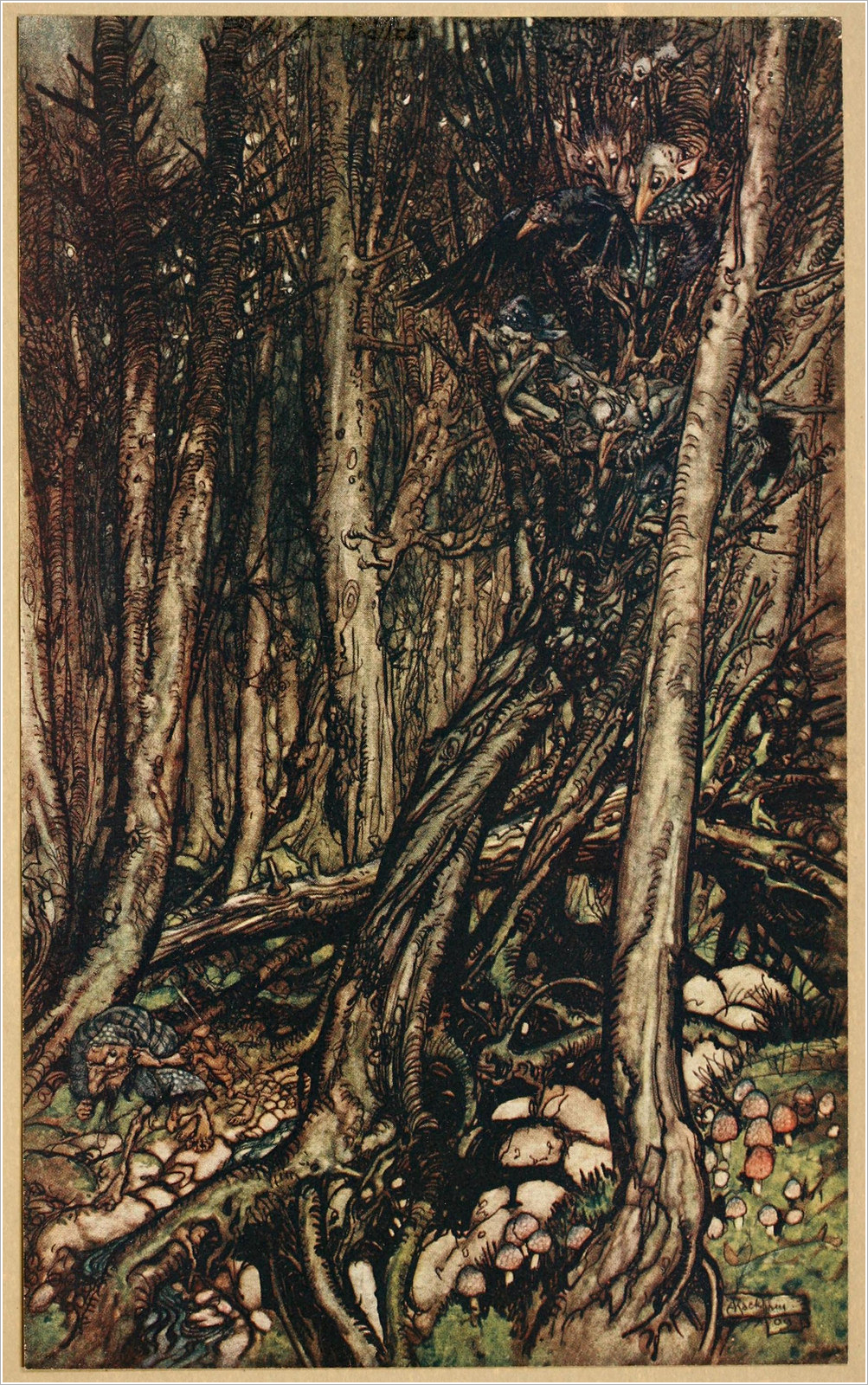I do not have a specific phobia as some people do (apart from finding mannequins greatly disturbing), yet I feel fear at certain things which I suspect is shared by the majority of humans as they can only be explained as in-built fears. I was once in a wood, in a small valley, on my own and off from the main path; the trees were thick and there was barely a sound to be heard, I was standing underneath a huge Yew tree. Despite it being mid-day and thinking as logically as I could, a nasty uncontrollable urge to run very fast back to the path overcame me. The fear crawled almost tangibly in my brain, making me hear and even see things that were not there, my reflexes became very quick and I was looking all around me because of the feeling something was sneaking up on me. Eventually I could stand it no longer and fled full-pelt through the trees and back to the path where I instantly felt better and laughed off the last dregs of fear.
So what was that? I believe that it stems from a deep-rooted fear of forests, being alone and darkness that may not make sense now but thousands of years back were very sensible indeed. Imagine living in an England where wolves and bears roamed all the forests, when there were no books of the native fauna – meaning that in your mind anything you could dream up could be in those woods. People likely died from wolf attacks or got lost in the pathless forests regularly, being a social species we humans would very naturally have acquired a fear of such wild places – especially when on ones own. With actual real dangerous animals to fuel our overactive imaginations that thought-up monsters and demons in the dark woods, it is little wonder that all these centuries later we have inherited that fear.
All of the scariest and most popular fairy-tales are set in enchanted forests or feature wolves or bears, this is not a coincidence. I am fascinated by this connection with our ancestors, the idea that we feel the same fear they felt, that our now unnecessary fear was created by real people having real experiences in the wild in the distant past. It is one of the few things left of those people, save a few ancient burial mounds and stone circles and is all the more personal – a survival instinct based on the fear of real (still in existence) animals and the darkness in which they hunted.
The wild wood was and still is a bit of an oxymoron; being a source of food, fire-wood, shelter, materials and so much natural life to our ancestors yet at the exact same time a source of great fear and danger that survives to this day. In a cultural sense the wild forest has had a major impact – affecting folk and fairy tales for centuries and the root of many childrens, fantasy and even sci-fi literature – leading right up to the imposing wild wood in ‘The wind in the Willows’ by Kenneth Grahame. What is left of the once expansive wild forests of Europe are now refuges and havens for plant and animal life that depends upon it and which could live nowhere else – Lynx, Bison, Wolf and Bear now have as much cause to fear us as we do them.


May 12, 2015 at 10:45 pm
Now we need to protect our wild places and there’s no need to fear.
LikeLiked by 1 person
May 7, 2015 at 11:22 am
What a wonderful piece Elliot!
LikeLike
May 7, 2015 at 2:37 pm
I’m glad you think so, I was worried about it because I couldn’t think of anything to write so eventually just rattled this off.
LikeLiked by 1 person